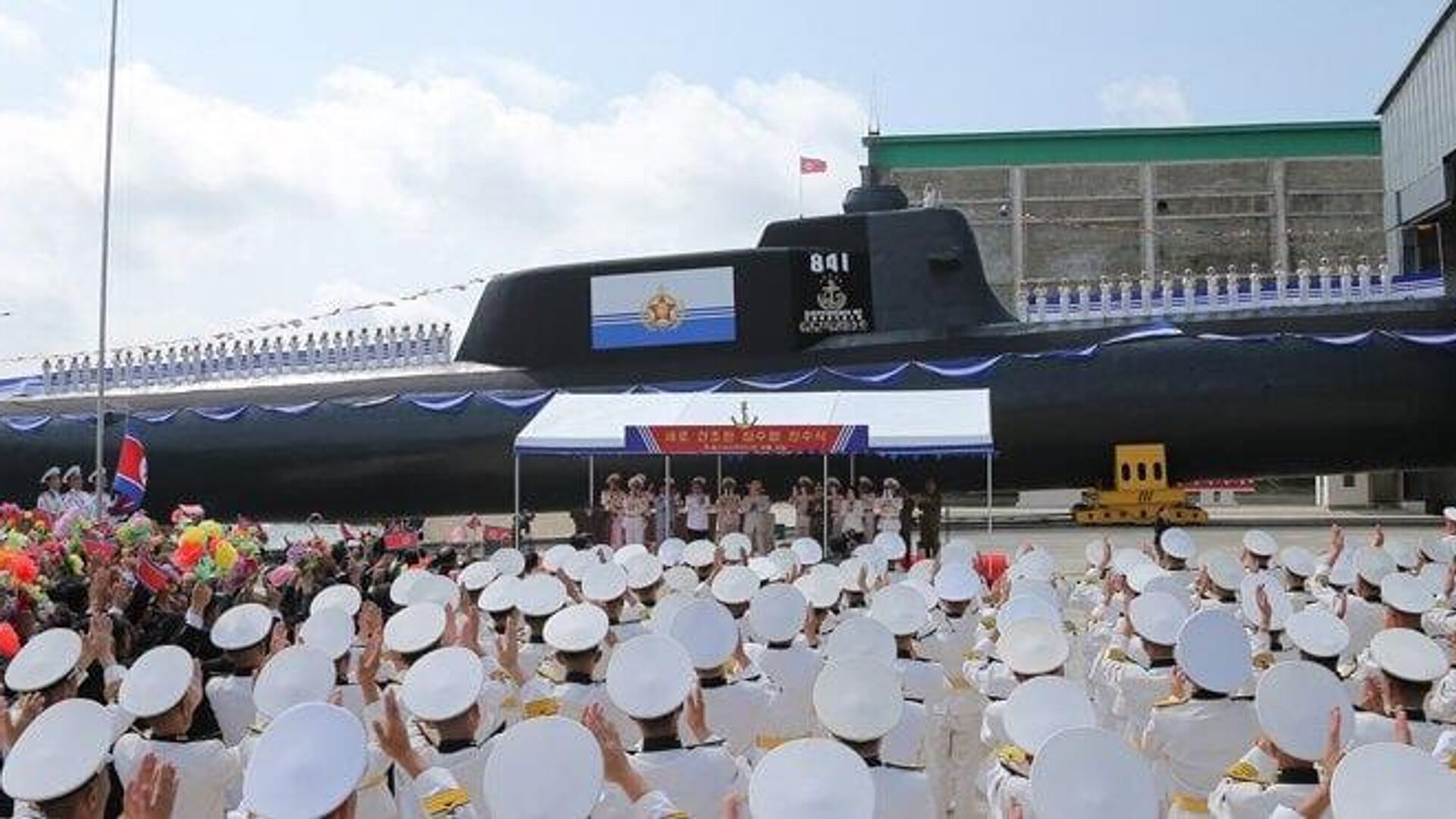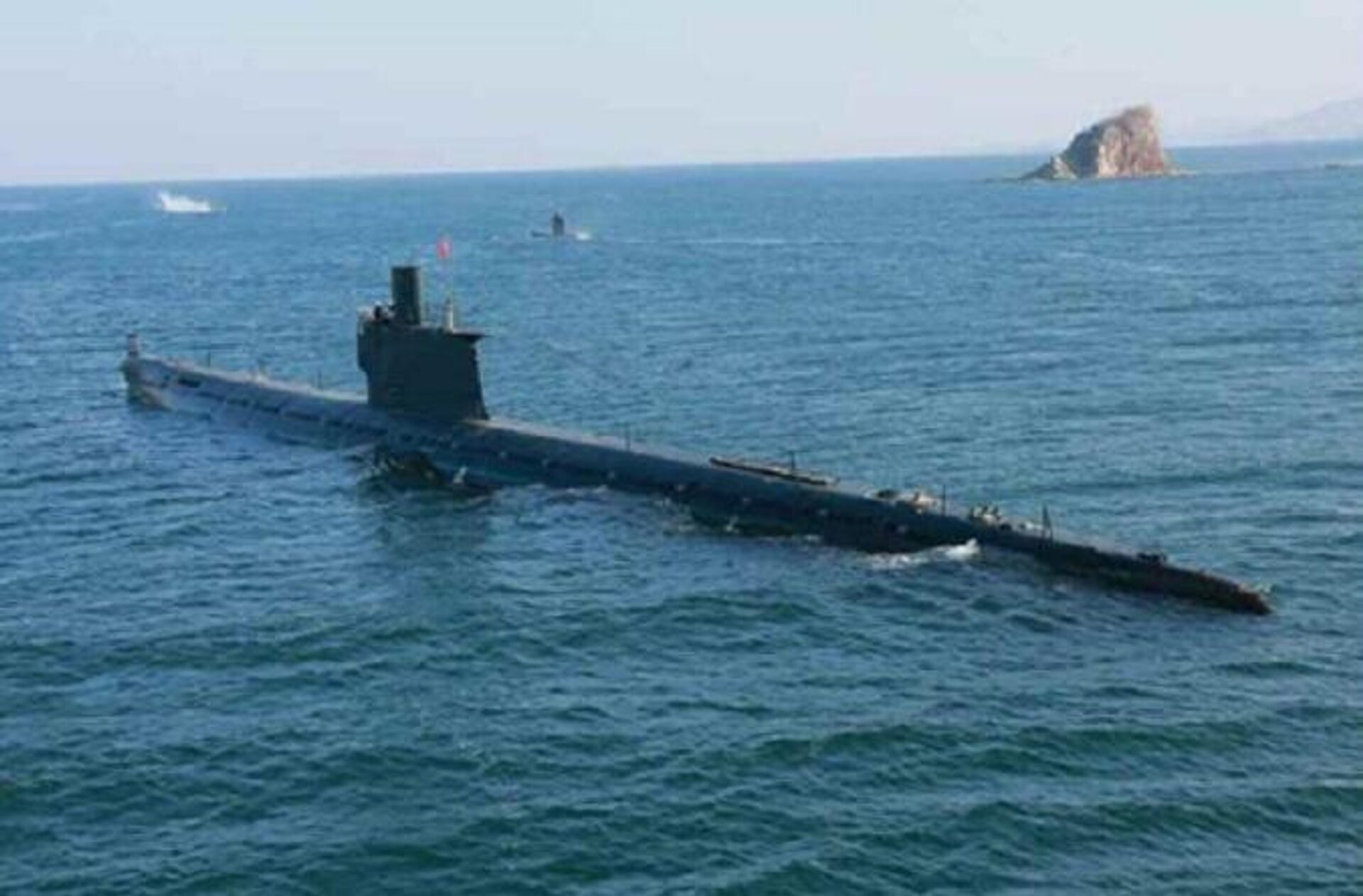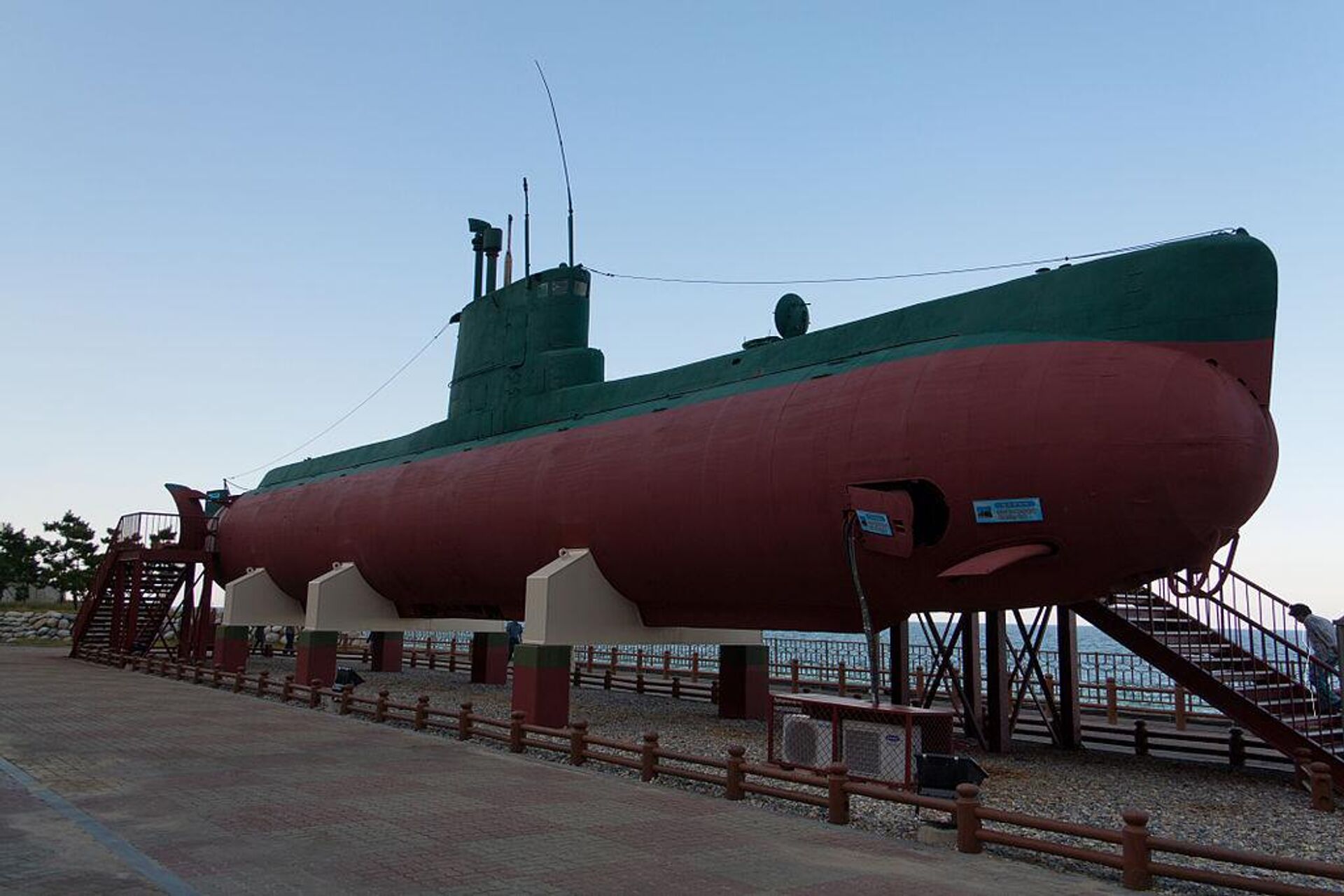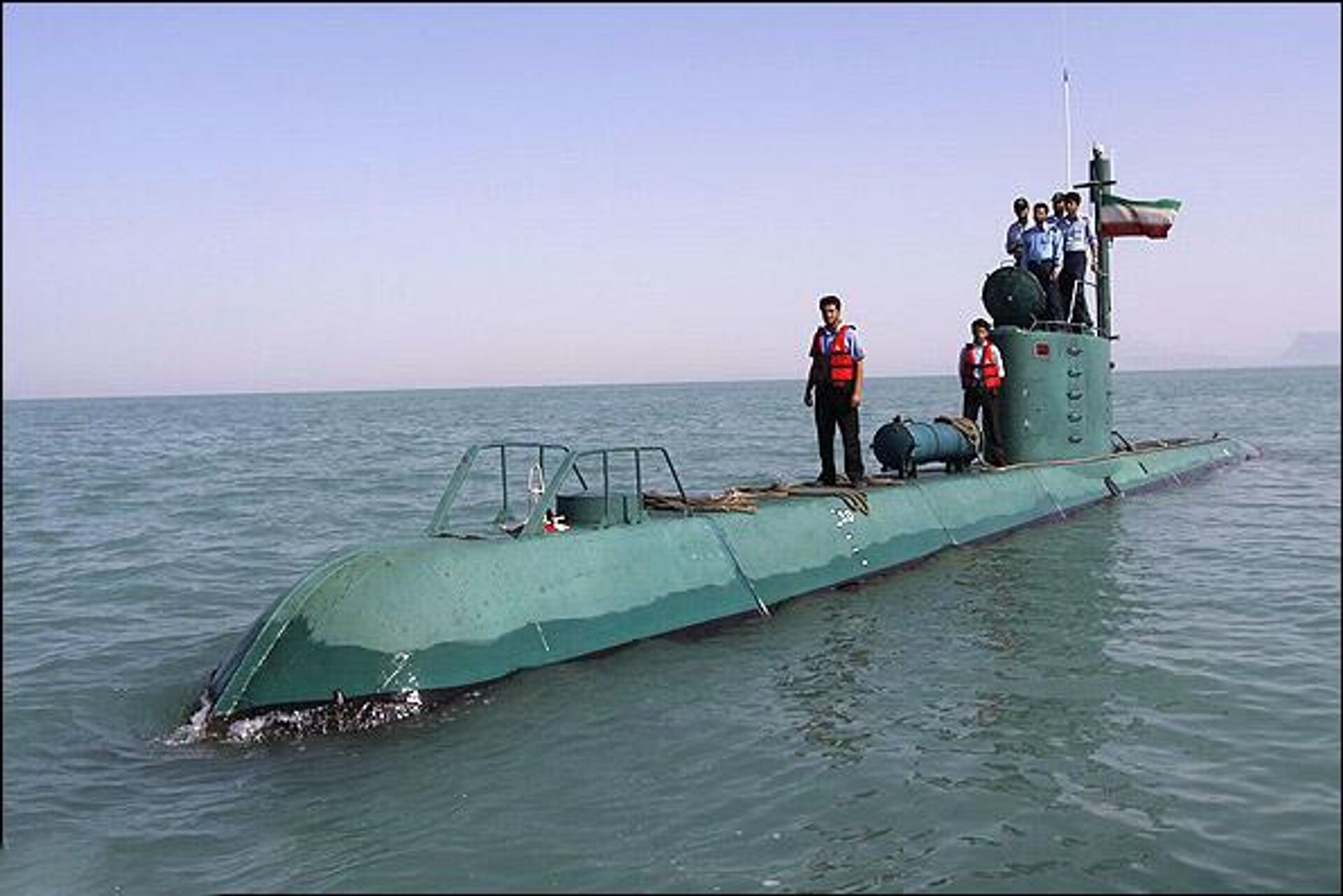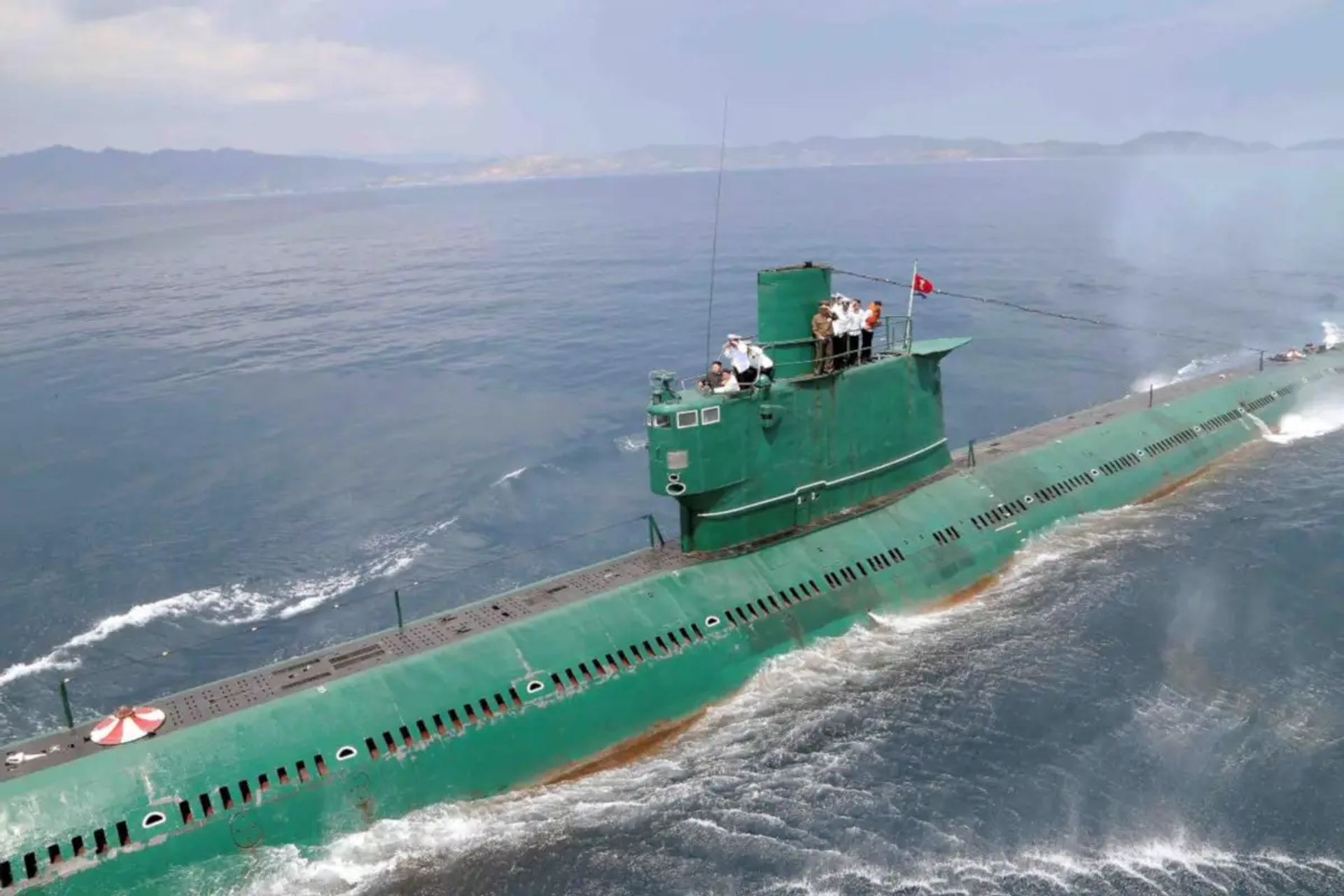https://sputnikglobe.com/20230908/what-kinds-of-subs-does-north-koreas-fleet-have-1113209376.html
What Kinds of Subs Does North Korea's Fleet Have?
What Kinds of Subs Does North Korea's Fleet Have?
Sputnik International
North Korean leader Kim Jong Un has laid out a modernization program to bring the country's Cold War-era weaponry up to date for 21st century operations, as the socialist state postures as ready to defend itself at any time.
2023-09-08T17:19+0000
2023-09-08T17:19+0000
2023-09-18T13:37+0000
submarine
north korean armed forces
submarine-launched ballistic missile (slbm)
military
north korea
https://cdn1.img.sputnikglobe.com/img/07e7/09/08/1113193946_44:0:705:372_1920x0_80_0_0_b56b5e926b25820612177398d89462b0.jpg
The Democratic People’s Republic of Korea (DPRK) unveiled its latest submarine, christened Hero Kim Kun Ok, on Friday. Described as a "tactical nuclear attack submarine," the vessel is a reconstruction of an existing submarine into one capable of carrying tactical nuclear weapons, according to President Kim Jong-un.Little else is known about the vessel, including its displacement, total armament, or other details. Some Western observers have suggested it could be based on a Soviet-era Project 633 (NATO reporting name Romeo) submarine, but that has not been confirmed by North Korean officials.The Hero Kim Kun Ok joins a Korean Peoples Navy (KPN) with dozens of other submarines in it from four distinct classes:Sinpo-ClassAlso called the Gorae-class (Whale-class) or Pongdae-class, this is the DPRK’s newest and largest submarine in service. Just one exists so far: the 8.24 Yongung (August 24 Hero), and it’s unclear if Pyongyang has plans to build more or to use this submarine as an experimental vessel. Some Western reports suggest as many as six boats are presently under construction.It has been observed firing the Pukguksong-1 submarine-launched ballistic missile and a submarine-launched cruise missile of unknown designation.Sang-O-ClassThe first Sang-O, or “shark-class” submarine was introduced in 1991 as a small diesel-electric attack submarine, although for indigenously-made North Korean subs it is among the largest.The KPN has 40 Sang-O submarines in service, some of which are of an elongated variety, extending their length to 40 meters.Yono-ClassAnother small KPN boat is the Yono-class (Salmon-class), a 29-meter-long, 130-ton submersible introduced in 1965.The KPN may have five Yono-class submersibles still in service, according to Western observers.Type 033Known by the NATO designation “Romeo-class,” the Type 033 is based on the Soviet Union’s Project 633 submarine first introduced in 1957. Aside from the Sinpo-class, the Type 033 is the KPN’s largest submarine class, weighing in at 1,800 tons and 76.6 meters in length.In addition to being the largest, the Type 033s are also the DPRK’s fastest and furthest-ranging, capable of operating 3,820 nautical miles under diesel power or 260 nautical miles while submerged and running on batteries. They can reach a speed of 15.3 knots on the surface or 13.18 knots submerged.The Type 033 has six torpedo tubes on the bow and two more on the stern, which can be used to fire traditional torpedoes or horizontally-launched anti-ship missiles. They can also be used to deploy up to 28 naval mines.
north korea
Sputnik International
feedback@sputniknews.com
+74956456601
MIA „Rossiya Segodnya“
2023
News
en_EN
Sputnik International
feedback@sputniknews.com
+74956456601
MIA „Rossiya Segodnya“
Sputnik International
feedback@sputniknews.com
+74956456601
MIA „Rossiya Segodnya“
do north korea have submarines, north korea fleet, north korea submarine fleet, north korean fleet, north korea submarine, north korea submarine nuclear, how many ships does north korea have
do north korea have submarines, north korea fleet, north korea submarine fleet, north korean fleet, north korea submarine, north korea submarine nuclear, how many ships does north korea have
What Kinds of Subs Does North Korea's Fleet Have?
17:19 GMT 08.09.2023 (Updated: 13:37 GMT 18.09.2023) DPRK leader Kim Jong-un has laid out a modernization program to bring the country's Cold War-era weaponry up to date for 21st-century operations, as the state postures as ready to defend itself at any time. The country technically remains at war with South Korea and the US in the absence of a peace treaty ending the war that began in 1950.
The Democratic People’s Republic of Korea (DPRK)
unveiled its latest submarine, christened Hero Kim Kun Ok, on Friday.
Described as a "tactical nuclear attack submarine," the vessel is a reconstruction of an existing submarine into one capable of carrying tactical nuclear weapons, according to President Kim Jong-un.
Little else is known about the vessel, including its displacement, total armament, or other details. Some Western observers have suggested it could be based on a Soviet-era Project 633 (NATO reporting name Romeo) submarine, but that has not been confirmed by North Korean officials.
“The nuclear attack submarine, for decades a symbol of aggression against our republic, has now become a symbol of our revolutionary power to strike fear into the hearts of our despicable enemies,” Kim said as cited by North Korean media.
The Hero Kim Kun Ok joins a Korean Peoples Navy (KPN) with dozens of other submarines in it from four distinct classes:
Also called the Gorae-class (Whale-class) or Pongdae-class, this is the DPRK’s newest and largest submarine in service. Just one exists so far: the 8.24 Yongung (August 24 Hero), and it’s unclear if Pyongyang has plans to build more or to use this submarine as an experimental vessel. Some Western reports suggest as many as six boats are presently under construction.
Its size is estimated at about 70 meters long and a weight of nearly 2,000 tons, making it roughly comparable in size to Germany’s Type 212 submarines. The 8.24 Yongung is diesel-electric powered with an estimated range of 1,500 nautical miles.
It has been observed firing the Pukguksong-1 submarine-launched ballistic missile and a submarine-launched cruise missile of unknown designation.
The first Sang-O, or “shark-class” submarine was introduced in 1991 as a small diesel-electric attack submarine, although for indigenously-made North Korean subs it is among the largest.
The sub is about 34 meters long with a 370-ton displacement. It has four torpedo tubes and can carry 16 mines, although some are unarmed and used for deploying amphibious commandos.
The KPN has 40 Sang-O submarines in service, some of which are of an elongated variety, extending their length to 40 meters.
Another small KPN boat is the Yono-class (Salmon-class), a 29-meter-long, 130-ton submersible introduced in 1965.
The tiny submarine has room for just two crew and is reportedly unable to reload its two torpedo tubes. However, like the Sang-O, it can carry as many as seven commandos for secret deployment.
The KPN may have five Yono-class submersibles still in service, according to Western observers.
Known by the NATO designation “Romeo-class,” the Type 033 is based on the Soviet Union’s Project 633 submarine first introduced in 1957. Aside from the Sinpo-class, the Type 033 is the KPN’s largest submarine class, weighing in at 1,800 tons and 76.6 meters in length.
The KPN has some 20 Type 033 boats. Pyongyang obtained seven of the boats from the People’s Republic of China between 1973 and 1975 and built the rest from parts purchased from the PRC, keeping the Chinese designation of Type 033. The PRC built its own Project 633/Type 033 submarines after obtaining the plans from the Soviet Union prior to the Sino-Soviet Split in the early 1960s - a split in which Pyongyang carefully avoided taking sides.
In addition to being the largest, the Type 033s are also the DPRK’s fastest and furthest-ranging, capable of operating 3,820 nautical miles under diesel power or 260 nautical miles while submerged and running on batteries. They can reach a speed of 15.3 knots on the surface or 13.18 knots submerged.
The Type 033 has six torpedo tubes on the bow and two more on the stern, which can be used to fire traditional torpedoes or horizontally-launched anti-ship missiles. They can also be used to deploy up to 28 naval mines.
